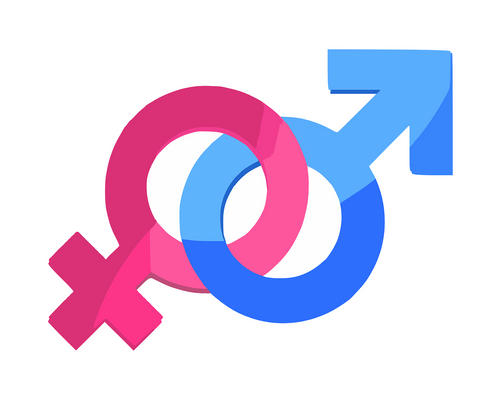5.2.2
Form & Language
Epigram
Epigram
The play begins with an epigram from Hart Crane’s The Broken Tower. Epigrams usually offer a pithy insight into the action and narrative of the play.


The epigram
The epigram
"And so it was I entered the broken world
To trace the visionary company of love, its voice
An insult in the wind [I know not whither hurled]
But not for long to hold each desperate choice."


Interpretation
Interpretation
- In this case, this seems to be apt because Blanche is entering and part of a broken world.
- She is seeking the "visionary" company of love but does not find it.
- Therefore, it is an "insult in the wind" (having no meaning).
- Considering her age and the decisions she has already made in her life, Blanche does face a "desperate" choice. She can have the faceless and boring Mitch or the "brutal desire" of Stanley. When she chooses "brutal desire", then tragedy is inevitable.
Language
Language
Williams deliberately contrasts male and female language in the play. He confronts harrowing issues in his language.


Types of English
Types of English
- Much of the language of the play is obviously based on American-English with its inherent phrases and rhythms.
- The American-English used is also distinctly "Southern" in feel.
- ‘White’ English language is often contrasted with ‘Black’- and ‘Mexican’- English.


Stanley and Blanche's language
Stanley and Blanche's language
- Williams contrasts the language of Stanley and Blanche.
- Blanche's language is full of dreamy, sophisticated ideas and terms. She tries to show off that she is cultured.
- Stanley’s language is earthy, industrial and working-class. He does not use pretentious language.


Contrast: male/female language
Contrast: male/female language
- William seems to show that men and women use different language for different purposes.
- The male language in the play tends to be more direct, whilst the female language is necessarily more circuitous and guarded (given that women were operating in a patriarchal world).
- Mitch uses more sensitive language than the other men.


Shocking concepts
Shocking concepts
- Williams was not afraid to use quite shocking ideas in his dramas. He confronts and deals issues such as rape, homosexuality, underage sex and sexual desire within women in his language.
1Context & Overview
1.1The Author
1.2Social Context & Setting
2Scene Summaries
2.3Scene Three
2.5Scene Five
2.6Scene Six
2.7Scene Seven
2.9Scene Nine
2.10Scene Ten
3Character Profiles
3.1Blanche DuBois & Stanley Kowalski
3.2Stella Kowalski & Harold Mitchell (Mitch)
4Key Ideas
4.1Sex & Gender
4.2Appearances, Fantasy & Reality
5Writing Techniques
5.2Genre, Form & Language
6Critical Debates
6.1Early & Modern Reception
6.2Feminist, Psychoanalytic & Marxist Approach
7Ideas About Tragedy
7.1Ideas About Tragedy
8Recap: Main Quotes
8.1Main Quotes by Scene
8.1.1Scene One - Quotations
8.1.2Scene Two - Quotations
8.1.3Scene Three - Quotations
8.1.4Scene Four - Quotations
8.1.5Scene Five - Quotations
8.1.6Scene Six - Quotations
8.1.7Scene Seven - Quotations
8.1.8Scene Eight - Quotations
8.1.9Scene Nine - Quotations
8.1.10Scene Ten - Quotations
8.1.11Scene Eleven - Quotations
Jump to other topics
1Context & Overview
1.1The Author
1.2Social Context & Setting
2Scene Summaries
2.3Scene Three
2.5Scene Five
2.6Scene Six
2.7Scene Seven
2.9Scene Nine
2.10Scene Ten
3Character Profiles
3.1Blanche DuBois & Stanley Kowalski
3.2Stella Kowalski & Harold Mitchell (Mitch)
4Key Ideas
4.1Sex & Gender
4.2Appearances, Fantasy & Reality
5Writing Techniques
5.2Genre, Form & Language
6Critical Debates
6.1Early & Modern Reception
6.2Feminist, Psychoanalytic & Marxist Approach
7Ideas About Tragedy
7.1Ideas About Tragedy
8Recap: Main Quotes
8.1Main Quotes by Scene
8.1.1Scene One - Quotations
8.1.2Scene Two - Quotations
8.1.3Scene Three - Quotations
8.1.4Scene Four - Quotations
8.1.5Scene Five - Quotations
8.1.6Scene Six - Quotations
8.1.7Scene Seven - Quotations
8.1.8Scene Eight - Quotations
8.1.9Scene Nine - Quotations
8.1.10Scene Ten - Quotations
8.1.11Scene Eleven - Quotations
Unlock your full potential with Seneca Premium
Unlimited access to 10,000+ open-ended exam questions
Mini-mock exams based on your study history
Unlock 800+ premium courses & e-books